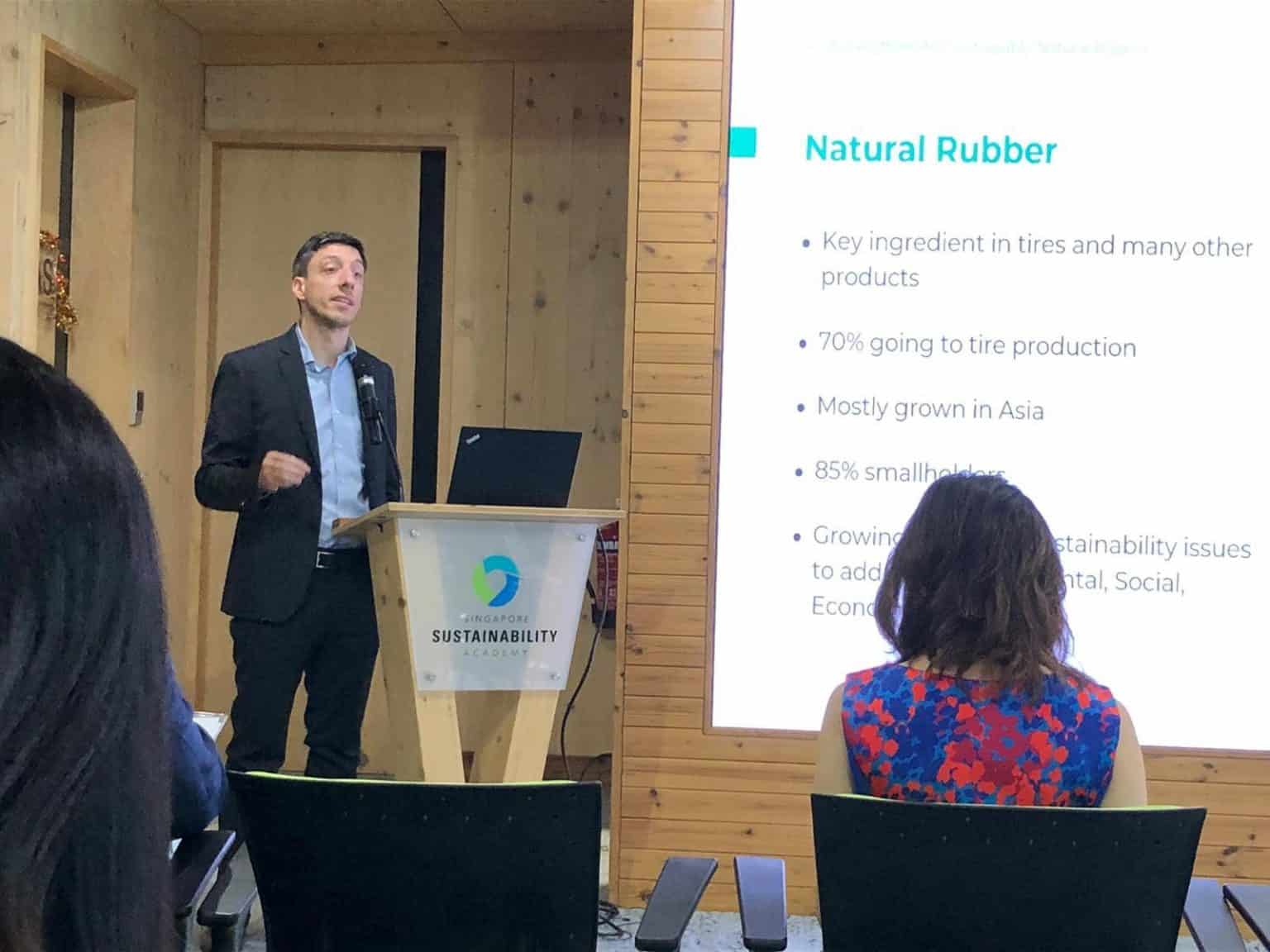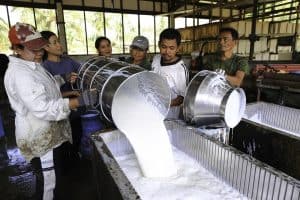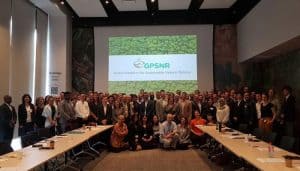Singapore, 21 March 2019: Today, natural rubber stakeholders convened for the inaugural General Assembly of the Global Platform for Sustainable Natural Rubber (GPSNR) – an independent platform that will lead improvements in the socio-economic and environmental performance of the natural rubber value chain.
Development of the GPSNR was initiated by the CEOs of the World Business Council for Sustainable Development (WBCSD) Tire Industry Project (TIP) in November 2017.
Members of the platform include tire manufacturers, rubber suppliers and processors, vehicle makers and NGOs. Representatives from each of these stakeholder groups have contributed to the development of the Singapore-based platform and the wide-reaching set of priorities that will define GPSNR strategy and objectives.
Following a ceremonial launch in October 2018 interest in the GPSNR has seen membership grow to 39 Founding Members including recruitment of the platform’s first civil society members. The GPSNR remains open to membership applications from all natural rubber stakeholders.
The General Assembly saw the approval of organizational Statutes and Code of Conduct, and the formation of an Executive Committee that has the mandate of overseeing the strategic and operational activities of the GPSNR. As required by the Statutes, the Executive Committee comprises representatives from each of the four GPSNR membership categories – 1. Rubber producers, processors and traders; 2. Car makers, Other downstream users of natural rubber, and financial institutions; 3. Tire makers and other natural rubber makers/buyers ; and, 4. Civil society organizations.
Reacting to the formation of the Executive Committee, GPSNR Director Stefano Savi, said “The appointment of the Executive Committee is a critical piece to a landmark achievement. It has taken considerable effort from all stakeholders to bring us to this point. We know that the real hard work lies ahead, but today from Singapore we send a clear message – the GPSNR is open for business.”
The platform is working to finalize its operational strategy, guided by the stakeholder-agreed GPSNR priorities of harmonizing standards to improve respect for human rights, preventing land-grabbing and deforestation, protecting biodiversity and water resources, improving yields, and increasing supply chain transparency and traceability.
Following proceedings from Geneva, Peter Bakker, WBCSD’s President and CEO said “We are enormously proud to see the GPSNR take this important step. The commitment of TIP members to achieve sustainable natural rubber has been a crucial driving force in taking the GPSNR from concept to reality. Today, our members are joined by a growing and increasingly well-balanced GPSNR membership of rubber value chain and civil society members – the actors are in place, and the foundations for transformative action along the natural rubber value chain have been laid. Now the real work can begin.”
For membership enquiries and more information on the GPSNR, please contact info@gpsnr.org
GPSNR Founding Members at the time of the platform’s inaugural General Assembly, March 2019, per GPSNR membership category, alphabetical order:
Producers, processors and traders:
Halcyon Agri Corporation, ITOCHU Corporation, Kirana Megatara, MARDEC, PRASIDHA, SIPEF, SIPH, Socfin Group, Southland Global, Thai Eastern
Car Makers, Other Downstream Users, and Financial Institutions:
BMW Group, Ford Motor Company, General Motors
Tire Makers and Other Natural Rubber Makers/Buyers:
Bridgestone Corporation, Continental AG, Cooper Tire & Rubber Company, The Goodyear Tire & Rubber Company, Hankook Tire Co., Ltd., Kumho Tire Company Inc., Michelin, Nokian Tyres, Pirelli & C. S.p.A., Sumitomo Rubber Industries, Ltd., Toyo Tire Corporation, The Yokohama Rubber Co., Ltd.
Civil Society organizations:
BirdLife International, Conservation International, HCV Resource Network, FSC, Mighty Earth, PEFC, Rainforest Alliance, RESOURCETRUST NETWORK, SNV, World Resources Institute, WWF
Affiliate Member Organizations:
Tanintharyi Region Rubber Planters and Producers Association (TRRPPA), ProForest, Control Union
For membership enquiries and more information on the GPSNR, please contact info@gpsnr.org






